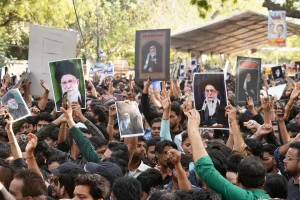Tanzania’s Political Unrest: Human Impact and Global Response
Recent events in Tanzania have cast a shadow over a nation often celebrated for its stunning landscapes and vibrant culture. Following contested election results, the country has experienced an outbreak of violence that has disrupted daily life and altered the nation’s typically peaceful atmosphere. Government authorities have implemented nighttime curfews in an effort to restore order to affected regions, while transportation networks—vital for both locals and the tourism industry—have faced significant interruptions. These developments have prompted numerous countries to issue travel advisories, recommending their citizens postpone non-essential visits to Tanzania until stability returns.
The tensions unfolding in Tanzania reflect deeper societal divisions that have simmered beneath the surface for years. What began as political disagreement has evolved into street demonstrations where ordinary Tanzanians express their frustration with perceived electoral irregularities. Families now navigate daily routines with greater caution, planning movements around curfew hours and avoiding areas known for confrontations between protesters and security forces. Small business owners, already struggling with economic challenges, face additional hardship as customers stay home and supply chains falter. Community leaders work tirelessly to promote dialogue across political divides, hoping to restore the social harmony that has long characterized Tanzanian society.
Beyond its borders, Tanzania’s situation has triggered significant international response. Foreign embassies have strengthened their presence to protect their nationals while coordinating with local authorities on security matters. Tourism operators—representing an industry that contributes substantially to Tanzania’s economy—have reluctantly rescheduled safaris and beach holidays, communicating carefully with disappointed travelers while trying to protect their businesses and employees’ livelihoods. Regional organizations have offered mediation services, recognizing that Tanzania’s stability affects the entire East African community. The diplomatic community walks a delicate line between expressing concern about human rights during protests while respecting Tanzania’s sovereignty.
For ordinary citizens, the unrest presents daily challenges that test resilience and community bonds. Teachers adapt lesson plans to discuss current events constructively while parents struggle to explain the situation to worried children. Healthcare workers report difficulties reaching certain neighborhoods, particularly during evening hours when the curfew takes effect. Despite these obstacles, countless examples of mutual support emerge—neighbors sharing resources, religious leaders organizing interfaith prayers for peace, and volunteer networks providing assistance to those most affected by travel restrictions and economic disruption. These grassroots efforts represent the enduring spirit of “ujamaa” (familyhood) that remains central to Tanzanian identity despite political differences.
The tourism sector, which has long showcased Tanzania’s natural treasures from Mount Kilimanjaro to the Serengeti plains, faces particular uncertainty. Hotel managers maintain skeletal staffs while hoping for swift resolution to the crisis. Safari guides, whose expertise brings the country’s wildlife heritage to life for visitors, find themselves temporarily unemployed. Conservation efforts potentially face funding gaps as tourism revenues decline. Yet industry veterans note that Tanzania has weathered challenges before, from global economic downturns to health crises, always returning to its status as a premier destination. Tour companies use the unexpected downtime to refine their sustainability practices and strengthen connections with local communities, preparing for eventual recovery.
Looking forward, Tanzania stands at a crossroads that will determine how quickly normal life can resume. Political leaders face pressure from civil society to engage in meaningful dialogue rather than relying solely on security measures. Economic experts emphasize the need for transparent communication to reassure international partners and investors. Ordinary citizens express hope that the current difficulties will ultimately lead to stronger democratic institutions and more inclusive governance. While travel advisories and security measures remain necessary in the immediate term, there is widespread belief that Tanzania’s fundamental strengths—its natural resources, cultural diversity, and tradition of peaceful coexistence—provide a foundation for overcoming the current crisis. The resilience demonstrated in communities across the country offers perhaps the most convincing evidence that Tanzania will emerge from this challenging period with renewed commitment to shared prosperity and democratic values.








